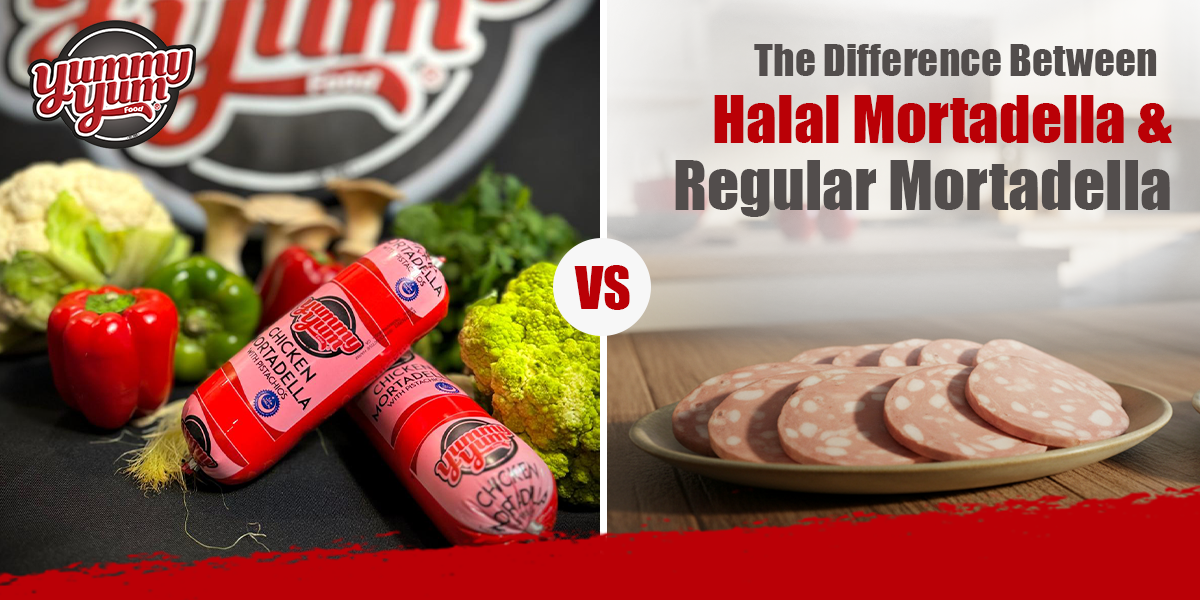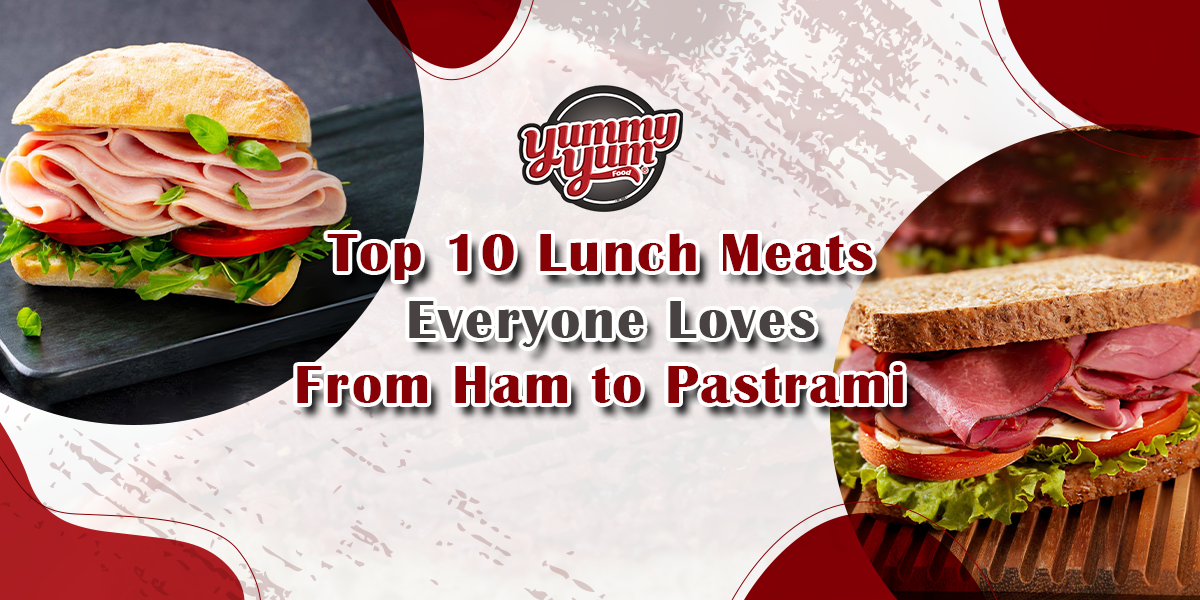
Choosing the right type of meat is one of the most important decisions for anyone who wishes to maintain a healthy, balanced, and ethical diet. For a growing number of people around the world, halal is the preferred standard because it reflects cleanliness, purity, humane processing, and high-quality meat preparation. As halal food continues to become more popular across households, restaurants, and supermarkets, the range of options available has also expanded. From classic beef products to premium halal deli meat, from halal Bologna to beef mortadella, consumers now have a wide selection of halal meats to choose from.
However, the increasing variety also raises an important question: how do you choose the best halal meat for your lifestyle, preferences, and nutritional needs? In this guide, you will learn how to evaluate halal meat properly, understand the different types available, and identify why high-quality brands such as Yummy Yum Food make a meaningful difference in your daily diet. Whether you enjoy beef sausages, halal lamb, chicken mortadella halal, or even deli meat with pistachio, this article will help you make informed choices that match your dietary goals.
What Makes Meat Truly Halal?
Before choosing halal meat, it is essential to understand what the term “halal” actually means. Halal refers to anything that is permitted, lawful, and pure according to Islamic law. When applied to meat, the halal process includes several important steps. The animal must be slaughtered in a humane manner, the person performing the slaughter must invoke the name of Allah, and the processing environment must remain clean, hygienic, and free from cross-contamination with non-halal products.
These principles ensure that halal meat is not just religiously acceptable but also safer, cleaner, and more ethical. Many consumers who are not Muslim choose halal products because they appreciate the transparency and quality in the preparation process. When buying halal meats such as beef mortadella, halal Bologna, halal lamb, or halal cold meats, understanding the meaning behind the certification helps you trust what you are eating.
Why Halal Meat Quality Depends on the Supplier
Just because meat is labelled halal does not automatically mean it is high quality. The quality will always depend on the standards, consistency, and integrity of the supplier. This is why choosing reputable brands such as Yummy Yum Food ensures that you receive halal meat made with care, precision, and premium ingredients.
High-quality halal producers prioritise several key values. They maintain clean processing environments, use authentic recipes, and follow strict halal certification guidelines. This results in products with better taste, texture, and freshness. Whether you are buying mortadella beef, chicken mortadella, beef sausages, or halal deli meat, the trustworthiness of the brand plays a major role in your experience.
Understanding the Different Types of Halal Meat Available
One of the most exciting things about the growth of halal food is the huge variety available today. You can find halal versions of almost every popular meat product, including sausages, salami, cold cuts, spreads, deli slices, and gourmet meat and cheese combinations.
For lovers of classic flavours, halal Bologna, beef sausages, and halal lamb offer traditional taste with halal integrity. For those who enjoy more premium or creative options, the halal market also offers modern varieties such as deli meat with pistachio, chicken mortadella halal, and mortadella halal infused with spices or herbs.
By understanding the categories, textures, and flavour profiles of these meats, you can make choices that best match your cooking habits and personal taste.
The Role of Beef Mortadella and Mortadella Halal in a Balanced Diet
Mortadella is one of the most popular halal cold meats today because it offers a smooth texture, rich flavour, and incredible versatility. Beef mortadella from Yummy Yum Food is known for its balanced ingredients, delicate seasoning, and satisfying bite. It is ideal for sandwiches, wraps, salads, and quick meals, especially for busy families.
When selecting mortadella halal, consider the quality of the beef, the freshness of the ingredients, and the method of preparation. Higher-quality halal producers create mortadella using real spices, authentic techniques, and premium cuts of beef. This ensures that you enjoy nutritious protein without unnecessary fillers or artificial flavours.
For those who enjoy something more unique, deli meat with pistachio provides a luxurious taste that adds richness to any dish. The blend of halal mortadella with crunchy pistachios makes it perfect for charcuterie boards, cheese platters, and flavour-packed sandwiches.
Choosing Halal Bologna and Why It Matters
Halal Bologna is another favourite in many households because of its mild, savoury flavour and smooth texture. It is often used for breakfast meals, children’s lunches, and quick evening snacks. However, not all bologna products are the same. When choosing halal Bologna for your diet, you should focus on products made from clean, high-quality meats rather than overly processed or artificially flavoured versions.
Yummy Yum Food’s halal Bologna is crafted using premium ingredients that maintain the traditional taste while ensuring that every stage of production follows strict halal guidelines. This allows families to enjoy a healthier and more natural version of a classic deli favourite.
Why Chicken Mortadella and Halal Chicken Products Are Growing in Popularity
Chicken-based deli meats have become increasingly popular because they are lean, low in fat, and suitable for health-conscious consumers. Chicken mortadella halal from Yummy Yum Food is a great example of how halal deli products can be both nutritious and flavourful. Its soft texture and mild taste make it an excellent choice for sandwiches, salads, and breakfast dishes.
For individuals looking to reduce red meat intake, chicken mortadella offers the same versatility as beef mortadella but with a lighter profile. Choosing halal chicken products ensures that the meat has been processed ethically and hygienically, providing peace of mind while supporting a healthy diet.
The Importance of Beef Sausages and Halal Lamb in High-Protein Diets
Many people rely on sausages as an easy source of protein and flavour in their meals. Beef sausages made from halal ingredients are perfect for grilling, frying, or using in pasta dishes. They provide a satisfying bite and rich flavour without compromising on halal standards. Yummy Yum Food’s beef sausages are crafted with care, offering a balance of seasoning, juiciness, and nutritional value.
Similarly, halal lamb is a wonderful choice for those who enjoy deeper flavours. Lamb is rich in protein, iron, and essential nutrients. When sourced from halal suppliers, lamb offers both nutritional benefits and strong adherence to Islamic dietary rules. Including halal lamb in your diet ensures you enjoy flavourful meals while meeting dietary preferences.
How Halal Meat and Cheese Combinations Can Support a Healthy Lifestyle
The combination of halal meat and cheese is extremely popular because it offers both protein and calcium in one meal. Products such as mortadella with cheese or halal deli slices paired with mozzarella or cheddar create convenient, high-protein snacks and lunches. These combinations are excellent for students, professionals, and busy families who need quick, nutrient-rich meals.
A high-quality halal food brand ensures that these meat-and-cheese combinations contain clean ingredients, proper seasoning, and balanced flavours. When choosing such products, always check that the cheese used is also halal, as not all cheeses meet halal certification standards.
How to Identify High-Quality Halal Cold Meats
Halal cold meats are a popular choice because they are easy to store, convenient to prepare, and ideal for quick meals. However, it is important to know how to evaluate quality. High-quality halal cold meats should have a clean, fresh smell, consistent texture, and natural flavour. Avoid products that appear rubbery, overly salty, or artificially coloured.
Packaging also matters. A trustworthy supplier will clearly label halal certification, production details, and expiration dates. Yummy Yum Food follows strict packaging and hygiene practices, ensuring you receive cold meats that are safe, fresh, and ready to enjoy.
Why Yummy Yum Food Is a Trusted Name for Halal Meat Lovers
When looking for the best halal meat for your diet, the credibility of the producer is essential. Yummy Yum Food is dedicated to delivering premium halal deli meat, high-quality cold cuts, and authentic halal flavours. Every product is made with strict adherence to halal guidelines, ensuring ethical slaughter, clean preparation, and trustworthy sourcing.
The brand offers a wide range of halal meats such as beef mortadella, halal Bologna, halal lamb, beef sausages, mortadella halal, chicken mortadella, and deli meat with pistachio. These options allow families to enjoy variety while maintaining purity and authenticity in every meal.
Yummy Yum Food’s commitment to quality makes it a reliable choice for those who want delicious, nutritious, and halal-certified products that fit naturally into modern lifestyles.
Conclusion
Choosing the best halal meat for your diet requires knowledge, awareness, and trust in the brands you select. By understanding what halal truly means and learning how to evaluate the ingredients, freshness, and quality of different meats, you can make decisions that support both your health and your values. Whether you prefer halal Bologna, beef mortadella, halal lamb, chicken mortadella halal, or premium halal cold meats, it is important to choose products from suppliers who prioritise purity, safety, and exceptional taste.
With Yummy Yum Food, you gain access to a wide range of authentic halal products that blend tradition with quality. These meats not only support a healthy lifestyle but also bring richness, flavour, and convenience to your everyday meals. By choosing wisely and selecting trusted halal meat options, you can enjoy better nutrition, ethical eating, and the peace of mind that comes from knowing exactly what is on your plate.






